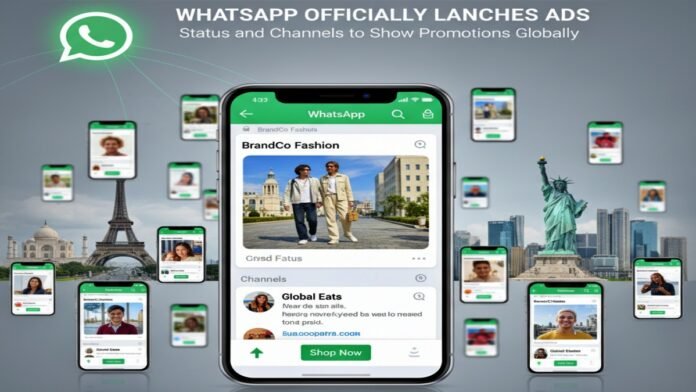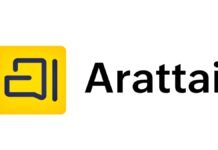
Key Highlights
- Meta officially announced WhatsApp ads in June 2025, with global rollout beginning in coming months
- Ads will appear exclusively in Updates tab between Status updates and in Channels discovery section
- Over 1.5 billion users visit the Updates tab daily, making it prime advertising real estate
- Personal messages, calls, and individual Status posts remain end-to-end encrypted and will not be used for ad targeting
- Ad targeting uses limited data: location (country/city), language, Channels followed, and ad interactions
- Users who linked WhatsApp to Meta’s Accounts Center will see personalized ads based on Facebook/Instagram activity
- Three monetization features introduced: Status ads, Promoted Channels, and Channel subscriptions
- Businesses can run WhatsApp Status ads through Meta Ads Manager using auction-based pricing system
- Meta shelved similar ad plans in 2018 and 2020 due to privacy concerns, now reviving strategy
New Delhi: After years of deliberation and false starts, Meta has officially greenlit advertising on WhatsApp, the messaging platform it acquired for $19 billion in 2014. The company announced in June 2025 that ads would begin appearing globally in the coming weeks and months through a phased rollout, marking a fundamental shift in WhatsApp’s business model.
“It’s going to be a global launch, and it will start over the next couple of months. I can’t share the specific timeline per country. I should say it will be a slow rollout,” stated Alice Newton-Rex, Vice President of Product at WhatsApp, during the announcement. The move represents Meta’s most significant attempt yet to generate meaningful revenue from WhatsApp’s massive 2 billion active user base.
Ads Confined to Updates Tab: Status and Channels Only
Meta has taken a careful approach to avoid alienating WhatsApp’s privacy-focused user base. Advertisements will appear exclusively within the Updates tab, specifically between Status updates from friends and in the Channels discovery section—not in personal one-on-one or group message threads.
Status, WhatsApp’s version of Instagram and Facebook Stories, allows users to share photos, videos, voice notes, and text with their contacts that disappear after 24 hours. When users scroll through Status updates, they will now encounter paid promotions from businesses interspersed between content from their friends and contacts, similar to how ads appear on Instagram Stories.
According to Meta, over 1.5 billion people visit the Updates tab daily to view Status updates and follow Channels from people and organizations they care about, making it an attractive platform for advertisers seeking massive reach.
Privacy Protections Remain in Place
Meta has emphasized repeatedly that the introduction of advertising will not compromise WhatsApp’s core privacy features. “We’ve been talking about our plans to build a business that does not interrupt your personal chats for years,” WhatsApp stated in its official announcement.
Personal messages, calls, and individual Status posts will remain end-to-end encrypted and will not be accessed or used for ad targeting purposes. “The personal messaging experience on WhatsApp isn’t changing, and personal messages, calls, and statuses are end-to-end encrypted and cannot be used to show ads,” Meta clarified in its press release.
Limited Data Used for Ad Targeting
To show relevant advertisements in Status and Channels, WhatsApp will use only limited information that does not compromise user privacy. The ad targeting mechanism relies on basic signals, including the user’s country or city, language preference, which Channels they follow, and how they interact with ads they see.
Critically, Meta stated it will not use personally identifiable data such as users’ phone numbers, message content, call records, or group memberships to serve targeted ads. However, users who have chosen to link their WhatsApp account to Meta’s Accounts Center, which connects Facebook, Instagram, and WhatsApp profiles, will see ads based on their ad preferences and activity across all their Meta platforms.
Three New Monetization Features Launched
Beyond standard Status ads, Meta is introducing two additional revenue-generating features to transform WhatsApp into a comprehensive content and business platform :
Promoted Channels will allow businesses and creators to boost their Channels in the discovery section, making it easier for users to find content relevant to their interests. Channel admins can now enhance their presence and grow their follower base through paid promotion.
Channel Subscriptions will enable select creators and businesses to charge users a monthly fee for exclusive content and updates on their Channels. These subscription payments will be processed through app stores, creating a new revenue stream for content creators and businesses using WhatsApp.
Businesses Access Ads Through Meta Ads Manager
According to Alice Newton-Rex, businesses have actually been requesting advertising options on WhatsApp for years. Now, businesses of all sizes can access Meta Ads Manager and create WhatsApp Status ads just as they would for Facebook or Instagram campaigns.
“It will operate via the auction system. It should feel similar to businesses of any size taking ads on Facebook or Instagram. Each ad is reviewed at the ad level rather than the advertiser,” Newton-Rex explained. This democratizes access to WhatsApp advertising, allowing both large corporations and small businesses to compete for visibility based on their advertising budgets.
In September 2025, Meta expanded these capabilities further by allowing advertisers to create click-to-message ads on Facebook and Instagram that direct users to WhatsApp Status updates instead of initiating direct message conversations. This hybrid approach gives businesses more expansive, full-screen promotional opportunities with chat call-to-action buttons.
History of Failed Attempts and Privacy Concerns
This isn’t Meta’s first attempt to monetize WhatsApp through advertising. In 2018, Meta announced plans to insert ads into Status updates but quickly backed away from the idea due to intense user concerns about chat privacy and the potential erosion of WhatsApp’s core value proposition.
WhatsApp’s founders, Jan Koum and Brian Acton, originally opposed advertising on the platform entirely, and Meta shelved monetization plans again in 2020. However, with WhatsApp’s user base now exceeding 2 billion and Meta facing pressure to justify its $19 billion acquisition, the company has determined that carefully implemented advertising represents the most viable path forward.
Until now, WhatsApp has generated limited revenue through its WhatsApp Business platform and click-to-WhatsApp ads that appear on Facebook and Instagram, allowing businesses to start conversations with customers. Meta has repeatedly highlighted these as growing revenue channels in quarterly earnings calls.
User Reactions and Privacy Concerns
The introduction of ads has sparked mixed reactions, particularly in privacy-conscious markets like Europe, where users view WhatsApp primarily as a messaging tool rather than a content discovery platform. Critics worry that the advertising rollout could compromise the “clutter-free” experience that has made WhatsApp popular, especially as Status updates previously personal content from friends will now include commercial interruptions.
Users who do not wish to accept the new terms will encounter a pop-up notification when opening the app, requiring them to either press “Continue” to accept or select “Not now” to defer the decision. However, the global rollout suggests that accepting the new advertising-supported model will eventually become mandatory for continued use of the platform.
Strategic Shift Toward Business Platform
Meta’s vision extends beyond simple advertising placement. The company aims to transform WhatsApp from a pure messaging application into a comprehensive content and business platform where brands, businesses, and creators can build direct relationships with audiences through Channels, conduct commerce, and generate revenue through subscriptions and promoted content.
“You’ll be able to find a new business and easily start a conversation with them about a product or service they’re promoting in Status,” Meta explained, positioning the ads as a discovery mechanism rather than mere interruptions. Whether users embrace this transformation or migrate to alternative messaging platforms like Signal or Telegram remains to be seen as the global rollout proceeds.





















































